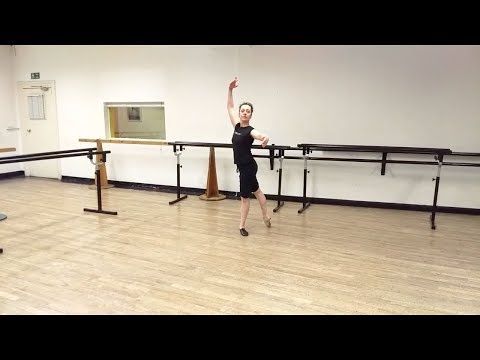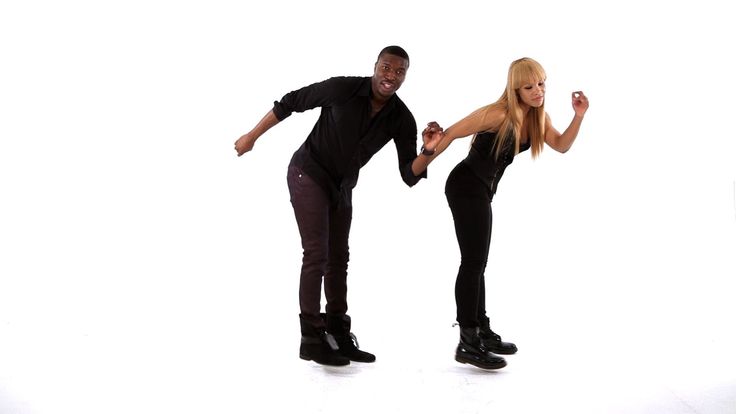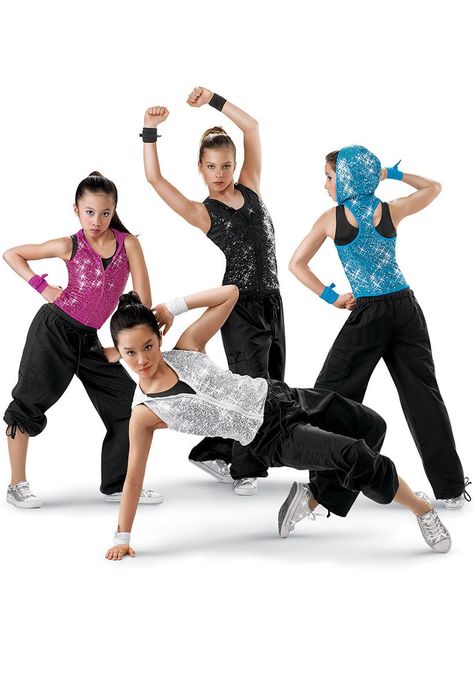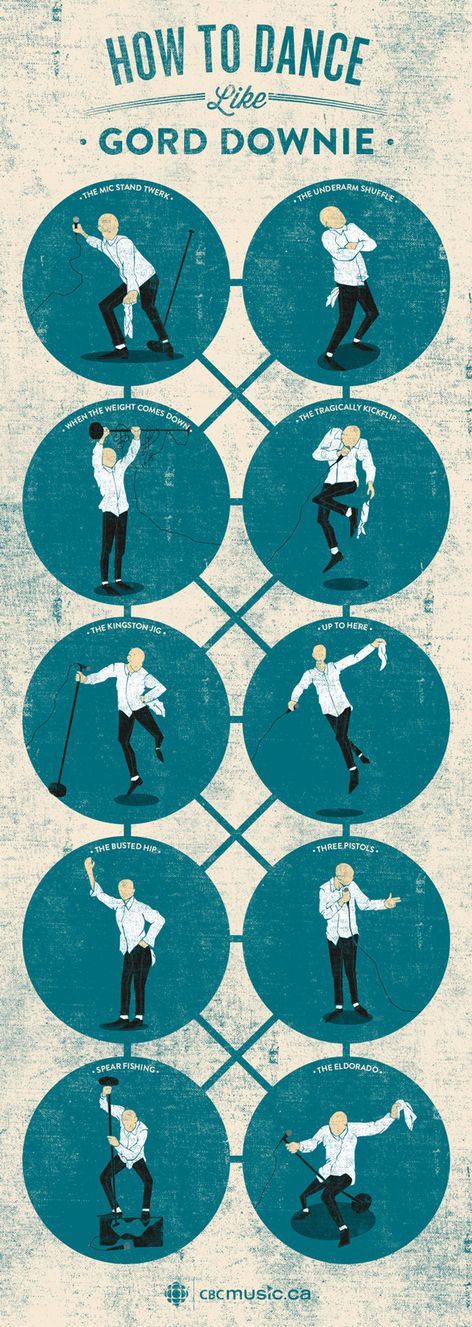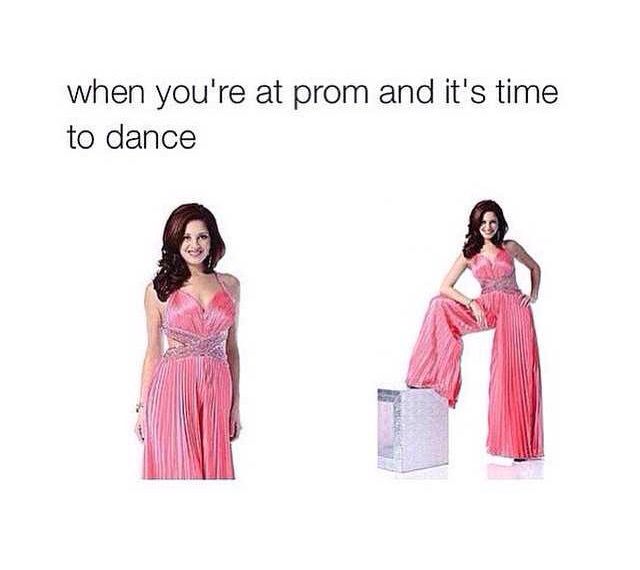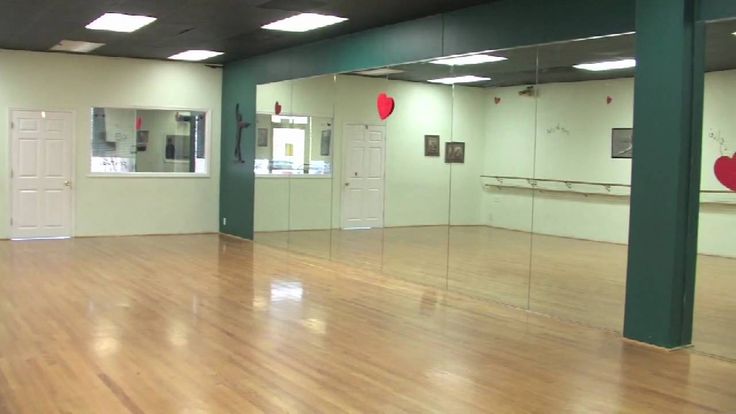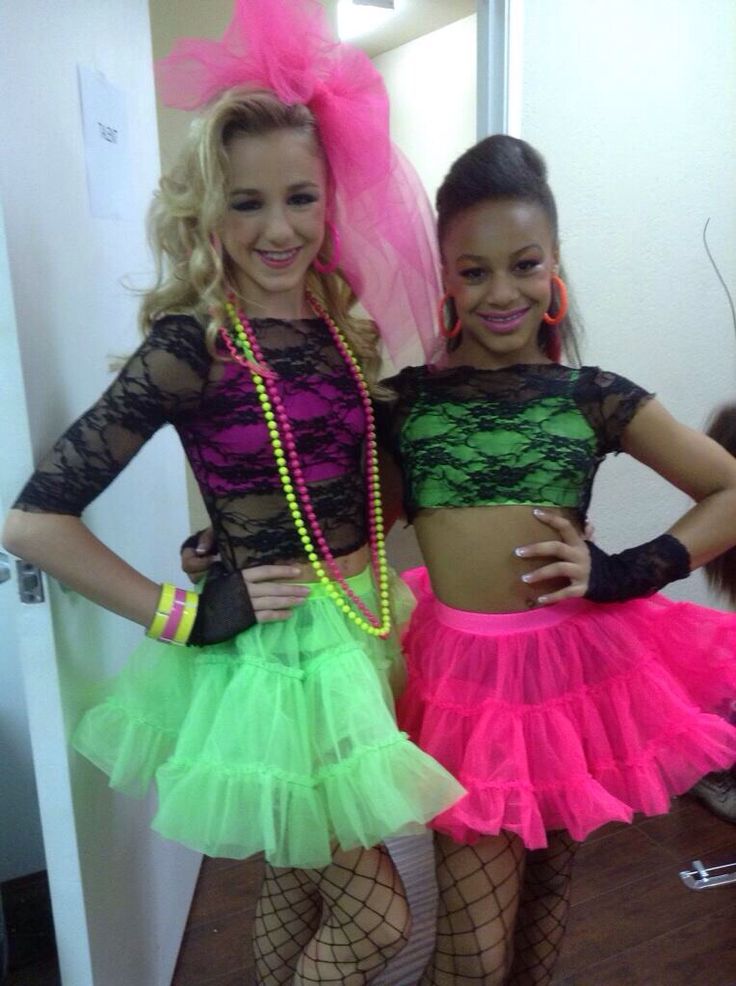How to tap dance beginner combination
Free Tap Dance Syllabus with Videos
Spank (Brush Back, Draw, Pull) -
Spank Step (Back Flap) -
Spank Step Heel -
Spank Step Ball Change -
Shuffle -
Shuffle Step (Running Shuffle, Leap Shuffles, Jogging Shuffles) -
Shuffle Ball Change -
Buffalo -
Cramp Roll -
Irish -
Maxie Ford -
Waltz Clog -
Heel Stand -
Step Heel Turn -
Flap Heel Turn -
Slide -
OPTIONAL STEPS
Clunk -
Leap -
JUMP TO: Top 1 2 3 4 5 6 7
LEVEL 2 (essential steps in teaching order, optional in alphabetical)
ESSENTIAL STEPS
Hop Shuffle -
Shuffle Heel -
Scuff -
Double Buffalo -
Double Cramp Roll (Flap Cramp Roll) -
Double Irish (version 1) -
Irish Flap -
Double Maxie Ford -
Double Waltz Clog -
Alexander (Broadway, Shirley Temple) -
Back Essence -
Flap Heel Heel -
Bombershay Modern (Bombershe, Toe Clip)-
Drawback -
Pullback (Pull, Grab Off, Pick-
Scuffle (Dig brush, Dig Spank, Paddle) -
Scuffle Step (Paddles, Dig brush Step) -
Scuffle Step Heel (Dig Brush Toe Heel, Paddle and Roll, Paradiddle -
Scuffle Ball Change -
Buck Single Time Step -
Traditional Single Time Step -
Buffalo Turn -
Step Irish Turn -
Step Toe Hop Turn -
In and Out Pullback (Jumping Jack Pullback) -
Toe Stand -
Slap -
OPTIONAL STEPS
Bombershay Broadway (Bombershe) -
Clicks (Toe & Heel) -
Crossing Pullback -
Heel Stand Turn -
Jump Click -
Leap Heel -
Smack -
Slam -
Travel Step -
JUMP TO: Top 1 2 3 4 5 6 7
LEVEL 3 (essential steps in teaching order, optional in alphabetical)
ESSENTIAL STEPS
Shuffle Step Heel -
Double Shuffle -
Double Irish (version 2) -
Alternating Cramp Roll (Around the World Cramp Roll, Trading Cramp Roll) -
Pendulum Shuffle -
Double Scuffle -
Double Scuffle Step Heel -
Double Back Essence -
Traditional Double Time Step -
Traditional Triple Time Step -
Buck Double Time Step -
Buck Triple Time Step -
Cincinnati -
Single Pullback (One-
Trenches (Hoofer & Broadway Style) -
Riff -
3-
4-
5-
Maxie Ford Turn -
Stamp Cramp Roll Turn -
Double Pullback -
Wing -
OPTIONAL STEPS
Boomerang -
Double Flap -
Scuff Dig Ball Change -
Single Heel Stand -
Skipping Pullback -
Step Heel Heel -
JUMP TO: Top 1 2 3 4 5 6 7
LEVEL 4 (essential steps in teaching order, optional in alphabetical)
ESSENTIAL STEPS
Triple Cramp Roll (Shuffle cramp Roll) -
Irish Pullback -
Double Toe Stand -
Toe Stand Turn -
Nerve Taps -
Switching Pullback (Swapping, Alternating Pullback) -
Maxie Ford Pullback -
Double Maxie Ford Pullback -
Shuffle Pullback Ball Change -
Waltz Clog Pullback -
Double Waltz Clog Pullback -
Shuffle Pullback -
Over The Top -
Shim Sham - STOMP SPANKS STEP, stomp spank step STEP, stomp spank step]3 times, stamp TOE STEP HOP step hop STEP jump-
Step Riff Heel (Hop Riff Heel, Leap Riff Heel) -
Heel
6-
7-
8-
Riffle -
Riffle Step -
Hines Riff (Split Riff) -
Stamp Step Riff Heel Turn -
Stamp Step Toe Heel Turn -
Paddle Turn -
Traditional Quadruple Time Step -
Buck Quadruple Time Step -
Single Traveling Time Step -
Double Traveling Time Step -
Triple Traveling Time Step -
Quadruple Traveling Time Step -
Crossing Wing -
Single Wing (One Foot Wing) -
OPTIONAL STEPS
Backwards Cramp Roll -
Cramprolet -
Cramp Roll Time Step -
Criss Cross Cramp Roll -
Dig Slide -
Flap Step Ball Change -
Heel Grind Time Step -
Hop Scuffle -
Maxie Ford Clunk -
Penguin -
Scap -
Scuff Dig Toe -
Scuffle Dig Toe -
Scuffle Step Turn -
Single Heel Stand Turn -
Single Toe Stand (One Foot Toe Stand) -
Single Toe Stand Turn -
Spank Toe Step -
Spots -
Stamp Roll -
JUMP TO: Top 1 2 3 4 5 6 7
LEVEL 5 (essential steps in teaching order, optional in alphabetical)
ESSENTIAL STEPS
Shuffle Dig Toe -
Shuffle Toe Step -
Riffle Step Heel -
Double Buffalo Toe -
Double Flap Cramp Roll -
Triple Double Cramp Roll -
Irish Pullback Flap -
Irish Pullback Flap Heel -
Maxie Ford Toe -
Double Maxie Ford Toe -
Buffalo Pullback -
Double Heel Stand -
Shiggy Bop (Shovel, Heel Slide) -
Crossing Drawback -
Double Drawback -
Triple Drawback -
Scuff Heel Step -
Switching Pullback Toe -
Treadmill -
Pullback Toe -
Dwing -
Swing -
Twing -
Single Wing Toe -
Double Wing (Separated, Staggered, Alternating) -
Switching Wing -
Traveling Pendulum Shuffle -
Shuffle Flap -
Shuffle Toe Toe Step -
OPTIONAL STEPS
Alexander Clunk -
Backwards Wing -
Click Buffalo -
Double Cincinnati -
Drawback Heel -
Dub Dub Dig Toe -
Heelo -
Jordan Pullback -
Jumper -
Lopsided Cramp Roll -
Maddie Mill -
Radiohead -
Rod Roll -
Scuffaloeo -
Scuffle Toe Slap Heel -
Shayberbom -
Shuffle Ball Change Heel -
Spat -
Spear -
Spiel -
Toe Stand Shuffle Step -
Tori -
Twister -
JUMP TO: Top 1 2 3 4 5 6 7
LEVEL 6 (essential steps in teaching order, optional in alphabetical)
ESSENTIAL STEPS
Shuffle Dig Step Shuffle Toe Step -
Shuffle Toe Pullback Ball Change -
Double Toe Buffalo -
Double Buffalo Toe Pullback -
Riffle Cramp Roll -
Irish Shiggy Bop (Irish Shovel) -
Irish Wing -
Double Maxie Ford Toe Pullback -
Double Toe Maxie Ford -
Double Waltz Clog Toe Pullback -
Hop Riffle -
Pendulum Riffle -
Riffle Dig Toe -
Bombershay Toe -
Shuffle Pullback Heel -
Flam -
Hoofer’s Shuffle -
Shuffle Heel Step -
Double Pullback Toe -
Switching Pullback Flap -
Single Wing Heel Toe -
Switching Wing Toe -
Wing Toe -
Same Side Wing -
OPTIONAL STEPS
Annalisa's 8-
Bam Bam -
Blur -
Clapull -
Clunker -
Ditto -
Dodo -
Drawbershay -
Farmer -
Flabbergast -
Hit -
Jackhammer -
Jimmy -
Jinnyshay -
Megamines Cramp Roll -
Nicaela Quick -
Rise -
Scopper -
Scout -
Scuffit -
Scuffout -
Shay Roll -
Shuffle Heel Step Heel -
Shunk -
Skunk -
Spackle -
Squiggly Wiggly -
Steel -
Stephunky -
Sugar Bop -
Swiffle (Tessa Backdraw) -
Toto -
Tucker -
JUMP TO: Top 1 2 3 4 5 6 7
LEVEL 7 (essential steps in teaching order, optional in alphabetical)
ESSENTIAL STEPS
Hop Shuffle Hop Scuffle Hop Riffle Hop Stomp Spank -
Step Riff Brush Heel -
Toe Dig Bombershay -
Drawback Flam -
Switching Pullback Flap Heel Toe -
Treadmill Heel -
Buffalo Wing -
Maxie Ford Wing -
Double Waltz Clog Wing -
Frap -
Frap Cramp Roll (NOT flap) -
Scuffle Pullback -
Buffalo Scuffle -
switching pullback
Irish Pullback Heel Flap Heel -
Single Pullback Toe -
Irish Pullback Toe Flap -
Hot Toe -
Waltz Clog Scuffle -
Scuff Front -
Double Scuff Front -
Frapback -
Cincinnati Flam -
Joe Toe Pull -
Pullback Dig Toe -
3 Sound Pullback -
Pullback Shuffle Step -
Single Pullback Opposite Toe -
Switching Toe Pullback -
Pendulum Wing -
Scissor Wing -
Five Count Wing -
Five Count Single Wing -
Heel Flam -
Jump Flam -
OPTIONAL STEPS
Baloney -
Brittanyshay -
Broken Riff -
Clickety Clank -
Click Pullback-
Click Wing -
Drawman -
Faluffalo -
Maddalo -
Riff Raff -
Rooster -
Rorymeister -
Ruffle -
Sh-
Sloppy Joe -
Teeler -
Toe Stand Wing -
Toro -
JUMP TO: Top 1 2 3 4 5 6 7
NOTES
This tap dance syllabus is designed to give you a rough idea of what level each of these steps can be taught at.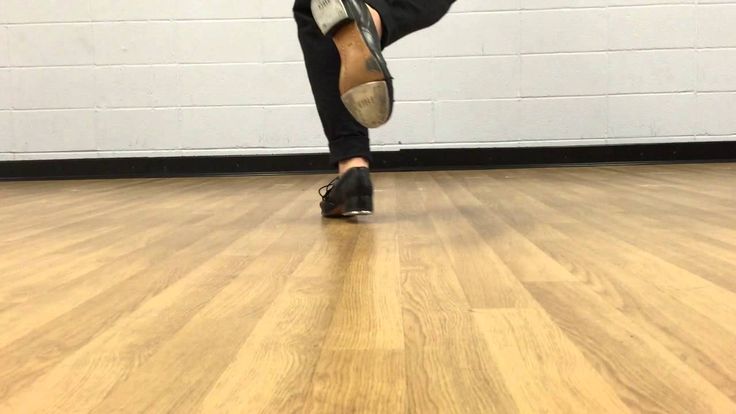 Like any syllabus, it is flexible. Some classes move very quickly and others more slowly. Also, I doubt anyone will get to each step in every level. I know I certainly don't. I try to hit the important ones and the rest are optional if I get around to them.
Like any syllabus, it is flexible. Some classes move very quickly and others more slowly. Also, I doubt anyone will get to each step in every level. I know I certainly don't. I try to hit the important ones and the rest are optional if I get around to them.
Beginner Tap Dance Lessons 1-12
You get:
- 12 easy-to-follow video lessons (12hrs).
- Fun exercise that makes you smile.
- A stronger body and sharper mind.
- Lifetime ownership.
- Notes with counts for every lesson.
The full price of this product was: $69.99 . If you purchase now, you will get it for $49 - in Digital Format (Digital Format (Download & Streaming)*)
The full price of this product was: $99.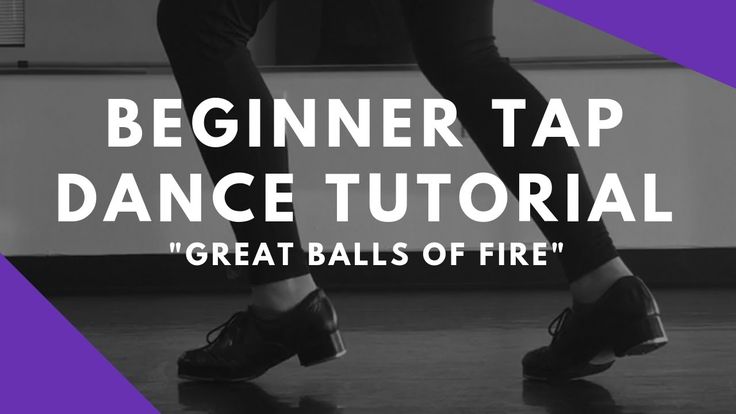 99 . If you purchase now, you will get it for $79 - in Digital Format ( DVDs + Digital Format )
99 . If you purchase now, you will get it for $79 - in Digital Format ( DVDs + Digital Format )
Can't afford it? Email Us we have an outreach program.
We have a better deal here!30 Day Money Back Guarantee. Ask for a refund, get a refund. Simple as that.
30 Day Money Back Guarantee
Buy Now and Get Free Shipping in the USA - Downloads are immediate.
Shipping: 1-2 weeks in the USA, 2-4 weeks ($20 extra) outside the USA
12 easy-to-follow video lessons
These 12 fun beginner lessons teach you how to tap dance at a pace you can easily follow and enjoy.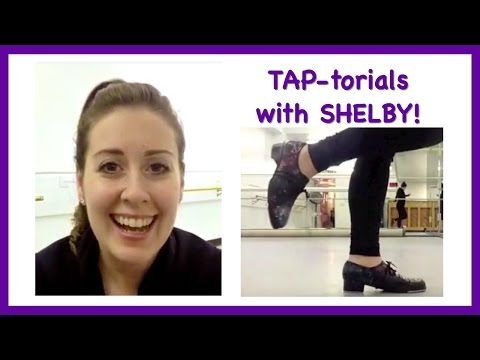 We start you from the very beginning so you never feel lost or like you're missing something. We teach everything slowly and clearly and we go over everything you learn several times so you can really get comfortable with the moves.
We start you from the very beginning so you never feel lost or like you're missing something. We teach everything slowly and clearly and we go over everything you learn several times so you can really get comfortable with the moves.
The best part is that we have tons of fun while doing it!
These lessons teach you 37 tap steps, and combine them into 16 combinations (short dances). You’ll be amazed how quickly you get comfortable with the basics and you’ll be doing your first combination by the end of the first lesson! Are you ready to have a blast?
Steps & skills you’ll learn include:
- Toes
- Heels
- Toe Toe Heel Heel
- Stamp
- Stomp
- Step
- Touch
- Toe (Tip)
- Dig
- Step Heel
- Dig Toe
- Dig Toe Step Heel
- Hop
- Jump
- Chug
- Brush
- Flap
- Flap Heel
- Flap Ball Change
- Spank
- Spank Step
- Spank Step Heel
- Spank Step Ball Change
- Shuffle
- Shuffle Step
- Shuffle Ball Change
- Buffalo
- Cramp Roll
- Irish
- Maxie Ford
- Waltz Clog
- Heel Stand
- Step Heel Turn
- Flap Heel Turn
- Slide
- Clunk
- Leap
- Executing Multiples
- Swing Rhythms
- Syncopation
Give yourself the best!
Don’t be fooled - No one learns how to tap dance in a single lesson or video (that’s why we give you 12).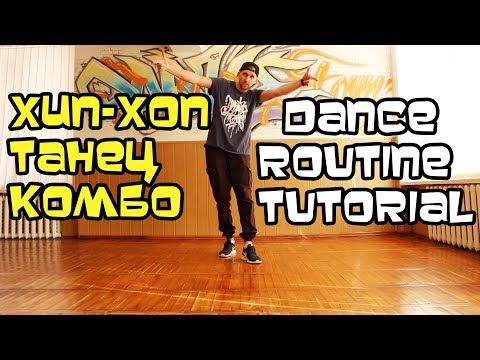 If you’re going to invest your time and money in learning tap dance, get the best set of lessons you can find!
If you’re going to invest your time and money in learning tap dance, get the best set of lessons you can find!
You want lessons that:
- Build your confidence so you dance with pride not uncertainty.
- Teach you a variety of steps so you never get bored doing the same old moves.
- Make you sweat a little so you feel like you really worked your body that day.
- Leave you with a smile on your face because the lessons are fun, upbeat, and easy to follow!
Our lessons do all of that for you!
Tap dancing makes you happier and healthier!
When you do something you love that strengthens your body and sharpens your mind you can’t help being a happier healthier person.
I had a man tell me he felt my tap dance videos had literally saved his life. He had struggled with his weight most of his life and ended up losing 60 pounds just by tap dancing with my videos!
This lessons series is popular!
“Thanks again for putting these lessons together. There really is nothing else out there like it! I don’t know if I could have learned how to tap without it. You really are keeping the art form alive.”
“I really enjoy the lessons. The lessons are easy to follow, your instruction is really clear, and I enjoy the conversational aspect to your teaching because it makes it feel like a real class situation. I think I got good value for my money and it's lots of fun.”
Testimonial of Julia - Studentfrom USA
Testimonial of Delores - Studentfrom USA
Yours for life!
No expensive subscriptions here - you get to keep these for life!
If you ever misplace or lose your files we will replace them free of charge.
You can download the lessons for offline viewing.
The full price of this product was: $69.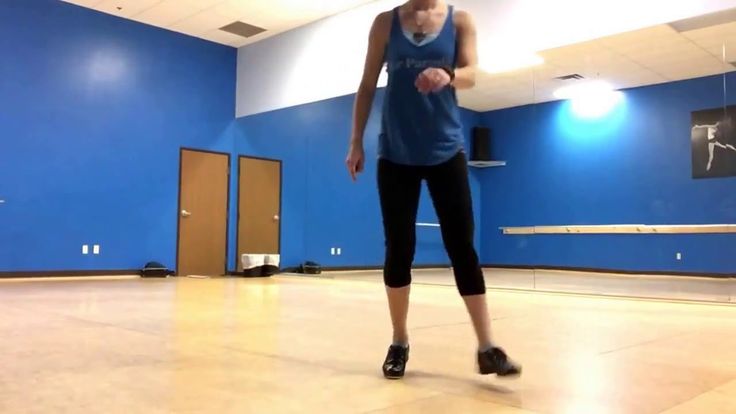 99 . If you purchase now, you will get it for $49 - in Digital Format (Digital Format (Download & Streaming)*)
99 . If you purchase now, you will get it for $49 - in Digital Format (Digital Format (Download & Streaming)*)
The full price of this product was: $99.99 . If you purchase now, you will get it for $79 - in Digital Format ( DVDs + Digital Format )
Can't afford it? Email Us we have an outreach program.
We have a better deal here! 30 Day Money Back Guarantee.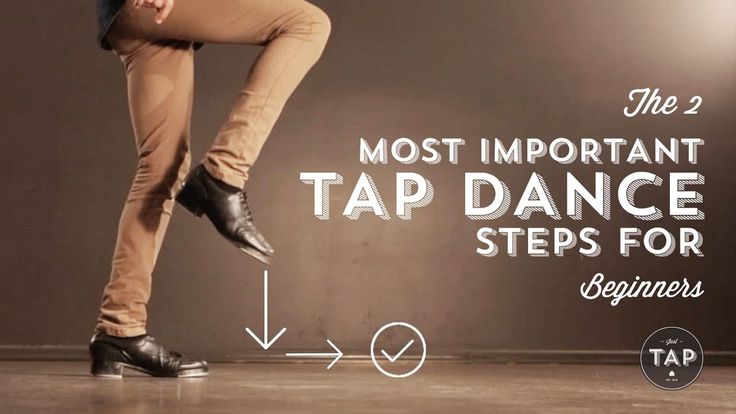 Ask for a refund, get a refund. Simple as that.
Ask for a refund, get a refund. Simple as that.
30 Day Money Back Guarantee
Buy Now and Get Free Shipping in the USA - Downloads are immediate.
Shipping: 1-2 weeks in the USA, 2-4 weeks ($20 extra) outside the USA
A word from Rod:
Whether you’ve tap danced before or not, you can expect my beginner lessons to start from the very beginning. I don’t assume you know anything. So I teach all tap dance steps from scratch. Even if you know how to do some steps I can almost guarantee I will have a different approach to that step than you’ve been taught previously.
I will help you identify common problems and teach you exactly how to fix them. When I teach you a step we will go over that step many times before moving on. My goal is for you to build skills and confidence together as we progress.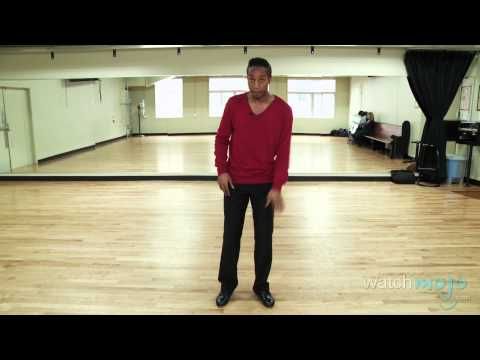 When I teach a combination (essentially a short dance) I go over it many times to make sure you have it. Again this makes for a more enjoyable experience for you so you can really get the material down pat.
When I teach a combination (essentially a short dance) I go over it many times to make sure you have it. Again this makes for a more enjoyable experience for you so you can really get the material down pat.
It doesn’t come naturally for a lot of people (it didn’t for me)! I’m not being discouraging here - I just want you to be realistic. Your entire life the only things you’ve done with your feet are probably standing, walking and running. That’s it. Your hands though type, swipe, play games, hold silverware, write, etc. They are used to doing many things. Your feet are not so you need to give them some time to try to get used to doing something new and different.
Do expect to have fun! Just because it’s a little bit challenging doesn’t mean you won’t have fun. In fact one of the biggest comments I get from people like you who buy my lessons is how much fun they’re having while getting their exercise in. Some have even told me they specifically chose to learn tap dance because they hate traditional exercise and tap dance looks like fun. They’re right!
They’re right!
The other thing I love about tap dance is how much it works your mind. Going for a walk is great, and I love walks, but it’s not going to keep your mind sharp like tap dancing is. In fact studies have shown that dancing improves brain health and reduces the risk of dementia. Coordinating your feet to the music and transferring your weight to the right place without losing balance is really good for you.
And frankly the thing I find most rewarding about sharing these lessons is knowing I’m helping other people lead happier healthier lives. If that wasn’t such a big part of this venture I would have quit long ago.
One more thing I’d like to share with you is how I was as a student. I was slow. I was slow to pick up something new and slow to be able to do it well. In fact I’ve been a slow learner at most things in life! I’m not proud of that, but it has helped me tremendously as a teacher. Because I didn’t get things on the first try, I’ve never assumed my students would either.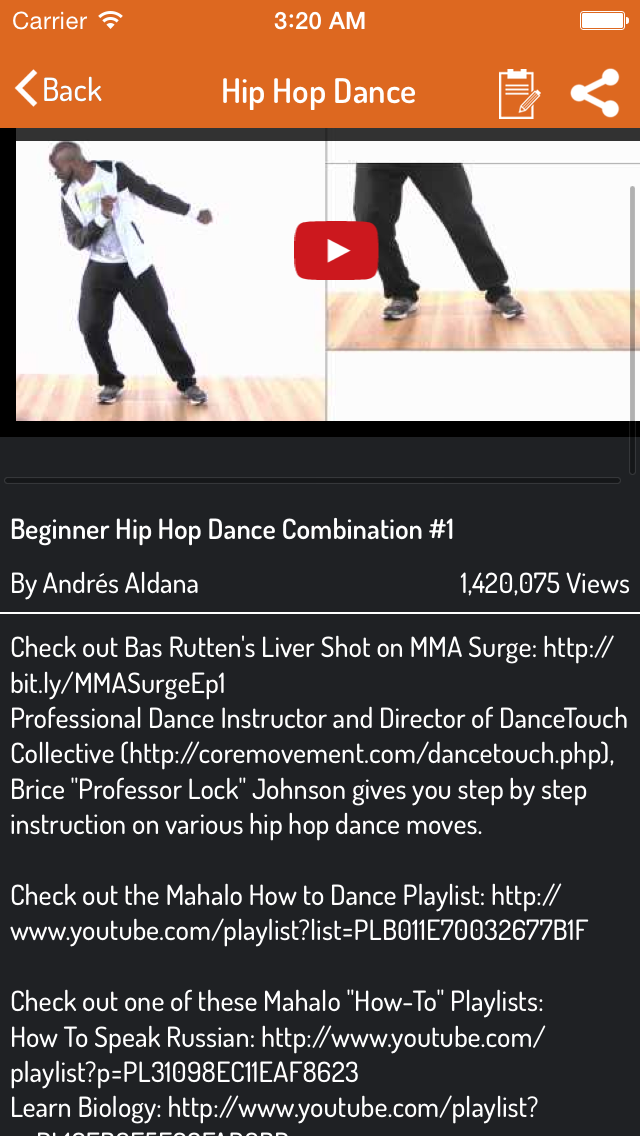 I take my time teaching and explaining and repeating. This way students don’t feel lost and discouraged.
I take my time teaching and explaining and repeating. This way students don’t feel lost and discouraged.
Part of the reason I learn slow is that I want to learn things deeply. I want to understand why my student’s sounds are not clear. I want to understand why they get the rhythm wrong. As I delved into each of those issues and many more I would always find very sensible answers - often ones I had never heard before. And then the beautiful thing I got to do was try them out!
It’s great to have a theory about why your students miss their sounds, but if your advice doesn’t actually help them get their sounds, you know it’s not right. So my techniques and strategies are based on what actually works in the real world with regular people like you.
The important thing is that everything I’ve learned over the last 30+ years of teaching is put into these lessons to make sure you have the best experience possible. That’s what I’m excited about - you having a great time and getting healthier and happier. That’s what makes the world a better place!
That’s what makes the world a better place!
What happens after you purchase
You’re presented with a web page and email containing links to your content (DVD orders get a separate email for tracking).
If you lose/delete your files, email me at [email protected] and I’ll send new ones.
If you have a problem contact me at [email protected] or 1-888-210-1075. I will solve it to your satisfaction or refund you!
What if...
It’s too difficult or I need a harder level? We can exchange the lessons for a different level at no cost or give you a full refund. Remember, we want you to have a great experience.
Important info
Note : The written notes are only available via PDF download (which you can then print).
Technical info
- Video length: 12 hrs (about 1 hr per lesson)
- Download size: 5-9GB
- Video format: MP4
STREAMING INFO: We offer streaming through Vimeo. To access the streams, you’ll need to set up a free account with Vimeo.
To access the streams, you’ll need to set up a free account with Vimeo.
How to learn to tap dance
Home Male and female Teaching How to learn to tap dance
Content of the article:
- 1 Fundamentals of the execution of the leaks
- 2 Success Secret
- 3 The main elements in the dance
- 4 Rhythms of leaks
The basis for the execution of the leaks
Chemisting is the main foundation for which the steps are considered to be tucked up by gender. Simply put, it is music played with the feet. Each time the celebrity of this dance only increases. It is compared with the Irish jig, because the tap-dancing rhythm is also of paramount importance there.
In order to start tap dancing, you need to buy special comfortable shoes for this. It should be in the form of shoes with metal heels. It is also important that the flooring is solid. This is necessary for a clearer sound of heels.
This is necessary for a clearer sound of heels.
Tap dance shoes can be purchased at a specialty store or made to order at any shoe repair shop. It is important that the shoes fit well enough on the foot. Very tight shoes will rub the foot, causing discomfort, and also further lead to foot deformity. Too loose shoes can lead to injury.
For such a dance, it is better to choose a place to practice in advance. It is best to dance outdoors on a special platform. It is important that there are no foreign objects nearby. This will improve the quality of classes, because swings and turns require a lot of space. It is advisable to tap dance under the guidance of an experienced master who can teach correctly and point out shortcomings. You can also learn to tap dance on your own. You should not engage in tap dancing in a multi-storey building, because it will cause negativity among the neighbors. It is best to do this in a special sports club. Suitable for any hard surface floor. Linoleum or carpet should be avoided, such coatings interfere with sound.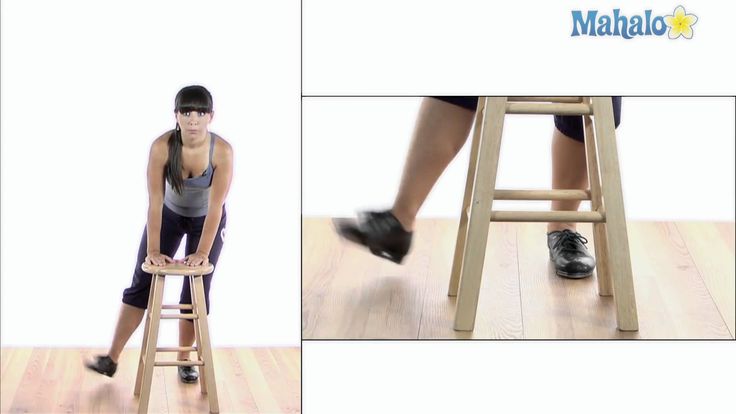
After the theory is mastered, you can move on to practice. If the classes will be held at school, then for clarity, a lesson will be shown with step-by-step instructions on how to start tap dancing. Then you need to slowly begin to repeat after the instructor, alternately performing each element of the dance. Performing everything slowly but clearly, you can quickly memorize the main elements of tap dancing.
The secret of success
For a good mastering of the tap dance movements, you need to train every day for half an hour. Additional classes also do not hurt. You can simultaneously master some other dance, for additional physical training.
The basic elements of the dance
All the basic elements of the dance are formed with the heel, toe and swing. Legs can be crossed, legs are swung, the toe can alternate with the heel. U-turns and jumps also look skillfully, with which leg swings are made. Turns are performed with the help of a sock, which is placed on the heel.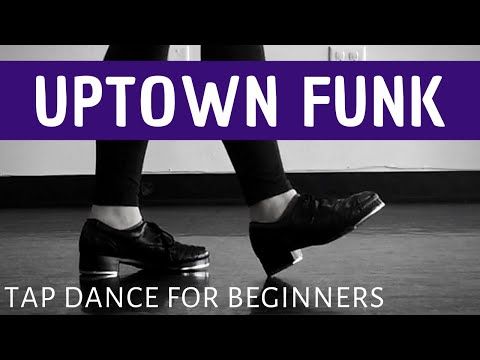 And all this is done at a fast pace. The main thing here is that the leg stance must be performed correctly and at a certain slope. Movement must be precise.
And all this is done at a fast pace. The main thing here is that the leg stance must be performed correctly and at a certain slope. Movement must be precise.
First you need to learn everything separately, each element. The main thing is the rhythmic step. Then there are 4 main movements. To execute the first brush element, you need to hit with your heel, putting your foot forward, and then put your foot back, hitting with your toe. Ball-change consists of performing a kick with one leg and subsequent kicks with the other leg. And so each leg alternates in turn. Flap is done by hitting the heel and toe of one foot, and then the other foot. Shuffle is an element that is executed when stepping forward. All these movements are worked out to automaticity, and then they are easily combined in a dance.
Tap-dancing rhythms
Every time a heel tap on the floor is done, and then a toe tap. And so there is an alternation between them. Learn sanchal at a slow pace and without music.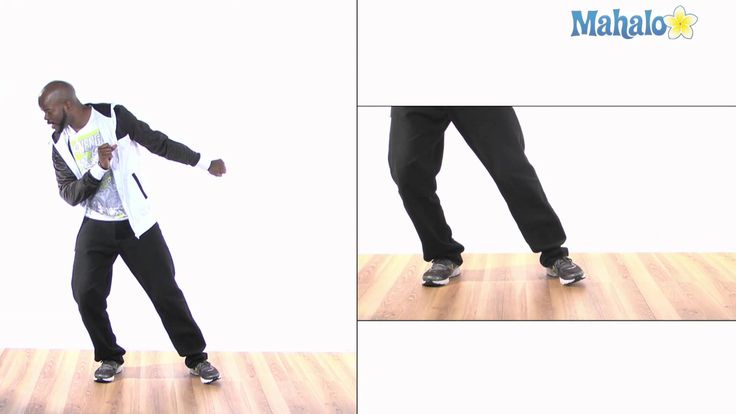 Once the basics have been learned, you can turn on an easy tempo, and then a fast one.
Once the basics have been learned, you can turn on an easy tempo, and then a fast one.
Knowing the main movements, you can begin to combine them into a dance. Otherwise, you can improvise, showing imagination. After all, such a dance is, first of all, an art. Their elements are added to the basic methods, and a new dance is obtained. Now you can create your own individual dances, with the basics of tap dancing.
So, to learn how to tap dance you need:
• Enroll in a dance school.
• Buy video tap dance course.
• Find a tap dance choreographer.
It is not always necessary to choose one option for tap dancing. You can enroll in a dance school and buy a course of video lessons. Thus, you can learn to dance not only at one time, at school, but also at home, according to the course of video lessons.
Like many dances, tap dancing is performed to music.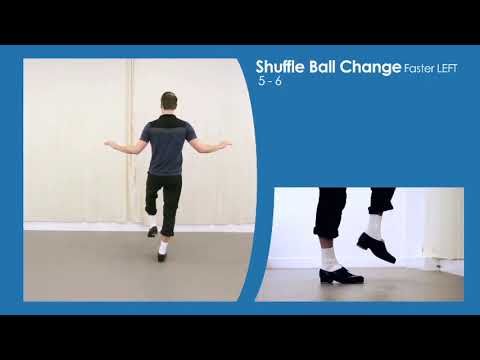 If you master the dance technique well, then you can perform tap dance without music. The rhythm that will be performed during the dance will be the melody of the tap dance itself.
If you master the dance technique well, then you can perform tap dance without music. The rhythm that will be performed during the dance will be the melody of the tap dance itself.
Learning something new, correctly combining movements and improving skills, you can achieve a lot. You can watch video lessons on the Internet, both individually and the complexity of the compositions. It is important not only to remember, but also to be able to exactly repeat the new dance movements.
Previous articleWhen can a cat be spayed
Next articleHow to cook chicken borscht
MORE STORIES
Step tap dance training for beginners. Tap - Dancing
What is the tiny pocket on jeans for?
How to find your soul mate: advice for women and men
How a cat can ruin your life
popular on dance floors at 90's.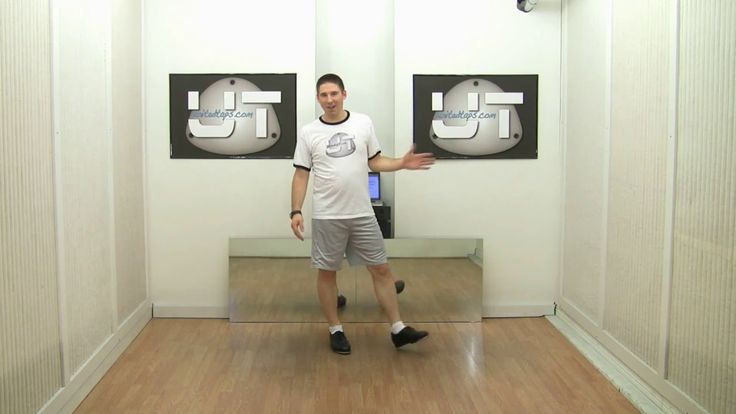 You probably remember the style called jungle. So, what used to be called jungle is now called drum. And nowadays this style is very popular. In this article Learn It is going to introduce you to the basics of how to learn how to dance drum step at home.
You probably remember the style called jungle. So, what used to be called jungle is now called drum. And nowadays this style is very popular. In this article Learn It is going to introduce you to the basics of how to learn how to dance drum step at home.
What do people regret most at the end of life
What happens if you stop washing your hair often
What is drum step?
Before starting training, it is worth getting acquainted with the drum step itself. This dance is a mixture of breakdancing, hip-hop, hardcore and other fashionable styles. By the name it is clear that it will not be easy, and you will have to sweat in order to learn the elements at a decent level. But over time, everyone who has set themselves the task of learning, turns out to dance drum step.
Required
Sports comfortable shoes with flat soles
Any sports or training wear, jeans can be
Lots of free time and desire to dance
Instructions
- At first, the elements of this dance may seem thoughtless.
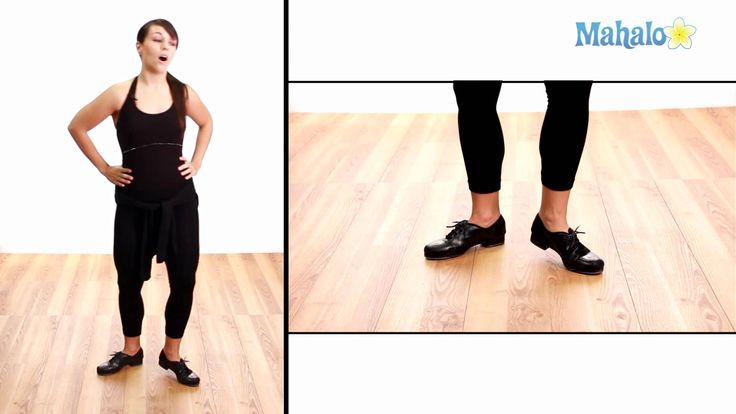 However, if you understand its origin, then the drum step is divided into certain movements that are inherent in other styles of modern dance. First, the name consists of the word "step" - this implies that most of the movements are performed with the legs. Therefore, it is worth taking care that does not interfere with training . Choose clothes that will not hinder your movements. Best to choose sweatpants or not too tight shorts, jeans .
However, if you understand its origin, then the drum step is divided into certain movements that are inherent in other styles of modern dance. First, the name consists of the word "step" - this implies that most of the movements are performed with the legs. Therefore, it is worth taking care that does not interfere with training . Choose clothes that will not hinder your movements. Best to choose sweatpants or not too tight shorts, jeans . - In addition to all this, it is worth considering suitable shoes . Look especially at the sole. It is necessary to choose a flat and absolutely flat. No excessive lifts, spikes or heels. If you make the wrong choice, it can lead to injuries that discourage training.
- Now pick up a seat , where you will study. The specificity of the dance suggests more free space. Naturally, it is better to work out in the gym. And in summer, an open area with an asphalt surface, or just a flat one, is perfect.
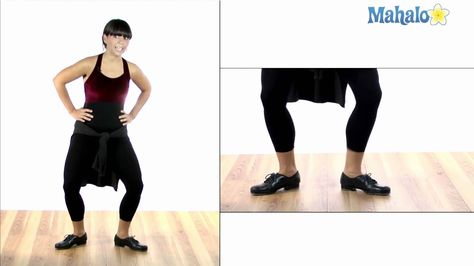 In principle, almost any place you like will do. It is important that there are no foreign objects near you that would hinder movement and could cause injury, and that the site has a suitable area so that training can be carried out without difficulty.
In principle, almost any place you like will do. It is important that there are no foreign objects near you that would hinder movement and could cause injury, and that the site has a suitable area so that training can be carried out without difficulty. - When you have created all the necessary conditions, you can start learning. If you immediately want to learn the basic elements, then let me get a little bored and offer to read the theoretical part. As they say - practice is not possible without theory . And vice versa. Therefore, it is worth paying equal attention to these two components.
- The basic element in the dance is the rapid alternation of energetic heel and toe strikes on the surface you are dancing on. It's dance base , all subsequent combinations and movements are based on it. Pay attention to this element. You have to do it very fast to get into the rhythm of the music. Given the musical style of Drum and Bass which is built on breakbeat is a huge work.
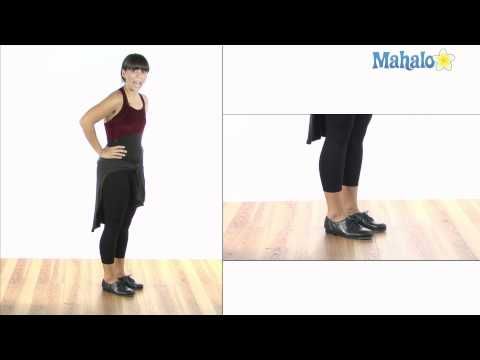 First practice this element without music so that it does not rush you. Gradually build up speed while maintaining rhythm. When you bring it to a certain pace, you can try it with music. Pay attention to the heel contacting the floor vigorously and do not forget about alternating heel and toe strikes.
First practice this element without music so that it does not rush you. Gradually build up speed while maintaining rhythm. When you bring it to a certain pace, you can try it with music. Pay attention to the heel contacting the floor vigorously and do not forget about alternating heel and toe strikes. - When you master the basic movement, feel free to move on to other elements. However, "do not drive horses", do not try to learn as quickly as possible. As in other things, haste can only hurt. If you want to achieve high results, then study all new movements measuredly and carefully. There are enough of them in this dance. There are different leg swings (to the sides, up) and others. Drum step is divided into subspecies: Panda, X-outing, VengrStyle, OldSchool (Standart) . Depending on the subspecies, there are certain elements that prevail over the rest. And, of course, try to create your own combinations. Improvisation is welcome in any work. Moreover, there is no definite sequence in the drum step.

- Another feature - try to get the legs at a certain angle to the surface when dancing . This is a prerequisite to achieve good technique.
- And finally. Naturally, reading this article, you will not be able to fully understand all the nuances of the described dance. You definitely need good example . It is better to work with a person who has experience in drum step. If this is not possible, then we will provide you with video lessons. Only if you have visual experience will you be able to get the results you want.
Video lessons
The basic movement of tap dance is the step. This movement serves as the basis of the foundations in all types of step. In the Irish jig, in the American tap, in the European step, or in the good old tap dance, there is one common element - the step. The step can be found in absolutely any dance of the tap dancer. Everything starts with him.
Before learning
When learning tap dance, you need to get used to new shoes.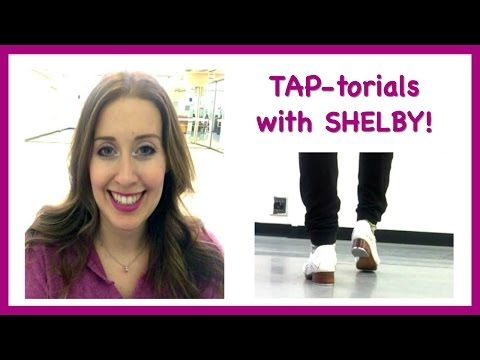 Shoes with metal heels are the main and indispensable accessory for a step dancer. When performing a “step”, you need to stand in one place and take a normal step, while placing your foot evenly across the entire foot. Now we will analyze the four basic elements of tap dancing: ball-change, flap, shuffle, brush.
Shoes with metal heels are the main and indispensable accessory for a step dancer. When performing a “step”, you need to stand in one place and take a normal step, while placing your foot evenly across the entire foot. Now we will analyze the four basic elements of tap dancing: ball-change, flap, shuffle, brush.
Ball-change
This item is very easy to make. First, we strike with the right foot, while the entire foot is placed on the floor. After that, we strike with the toe of the left foot. Now it remains for us to alternate the step with the kick of the toe.
Flap
This is a simple step with a little twist in execution. The leg is not placed on the entire foot, but first a heel strike is made, and then a toe. After that, the leg is placed on the floor and a similar movement is made with the second leg. When performing this element, the heel and toe strike is not done strongly, in order to create a feeling of lightness.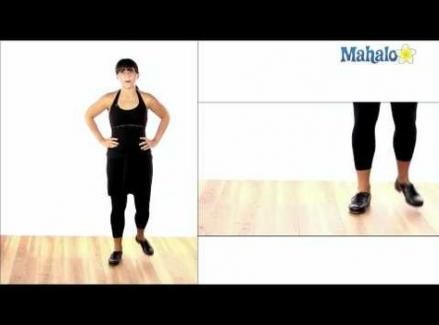 Light strokes in the step make the dancer imposing.
Light strokes in the step make the dancer imposing.
Shuffle
This movement is performed in the same way as the previous element. However, when performing Shuffle, a step forward is taken and the dancer's body leans, as if continuing to move.
Brush
A heel strike is performed with the foot forward. Then he returns to his original position, hitting with his toe.
This video demonstrates all four elements in various combinations. Having studied these elements and bringing them to automatic performance, you can experiment with them during the dance.
The Step section contains free video lessons on this dance. Step (tap dance) is a variety dance, the feature of which is the rhythmic percussive work of the feet. Step differs from other dances in that it can be performed without music at all. As a rule, the step is danced in special shoes lined with metal plates. However, the founders of the genre did not use them, relying on hard shoe soles and oak floors. Learning step by video lessons online will be useful for both beginners and more experienced dancers. You can watch video lessons from the Step category for free at any convenient time. Some video tutorials on Step have additional teaching materials that can be downloaded. Happy learning!
Learning step by video lessons online will be useful for both beginners and more experienced dancers. You can watch video lessons from the Step category for free at any convenient time. Some video tutorials on Step have additional teaching materials that can be downloaded. Happy learning!
Total materials: 1
Material shown: 1-1
Pages: 1
A little about tap dancing
Video lesson "A little about tap dancing" is devoted to the question of how this dance appeared and what it is. This dance appeared in slave-owning times in America. Later, he became popular in Russia. The tap studio, which is discussed in this video, carried out its first sets by holding demonstration concerts, at which all the bands showed their skills. After that, those who wanted to learn how to dance the step were determined where and with whom they would be ...
Pitch. The peculiarity of the step step is that when it is performed, the dancer puts his foot on a full foot, and, despite the fact that he takes a step, the dancer still remains in place. There are four main steps in tap dancing: ball-change, flap, shuffle, brush. Ball-change is the very element of tap. Hit the floor with the full foot of your right foot, and then hit with the toe of your left foot. Then just alternate these two movements. Flap - standing on one leg, hit with the heel, and then with the toe of the other leg and put your foot on the floor. Then do the same with the other leg. It is important here that the heel and toe strikes are not strong and create a feeling of lightness. Shuffle - performed similarly to Flap, however, during the movement, the dancer takes a step forward and leans forward a little. Brush - first, a heel strike is performed, while the leg goes forward, then she is back and a toe kick is performed.
There are four main steps in tap dancing: ball-change, flap, shuffle, brush. Ball-change is the very element of tap. Hit the floor with the full foot of your right foot, and then hit with the toe of your left foot. Then just alternate these two movements. Flap - standing on one leg, hit with the heel, and then with the toe of the other leg and put your foot on the floor. Then do the same with the other leg. It is important here that the heel and toe strikes are not strong and create a feeling of lightness. Shuffle - performed similarly to Flap, however, during the movement, the dancer takes a step forward and leans forward a little. Brush - first, a heel strike is performed, while the leg goes forward, then she is back and a toe kick is performed.
Stomp and stamp are also important elements of tap. Take a normal step with your left foot, at the same time lift your right foot up and leave the weight of the body on the last one. And return the left leg back, i.e. it should bounce off the floor.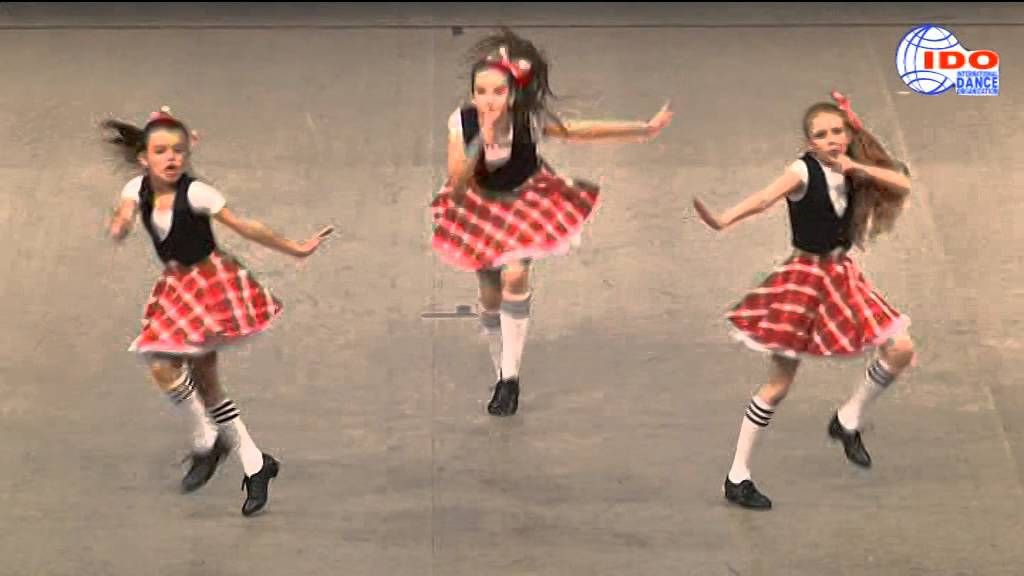 Mastering this element is not difficult. A stamp is the same as a stomp, except that when a stamp is executed, the kicking foot does not bounce, but remains on the floor. Flap heel or flap hl - very similar to flap, after which a second heel strike is made. Falling Off The Log - Sweep the toe of your right foot across the floor and end the movement with a kick to the toe of the same foot. Then do the same with your left foot. Don't forget about your hands: when one leg is pulled back, the opposite arm goes back with it. Despite its simplicity, this element is very original and dynamic. Its performance will decorate any dance, and also give it dynamism.
Mastering this element is not difficult. A stamp is the same as a stomp, except that when a stamp is executed, the kicking foot does not bounce, but remains on the floor. Flap heel or flap hl - very similar to flap, after which a second heel strike is made. Falling Off The Log - Sweep the toe of your right foot across the floor and end the movement with a kick to the toe of the same foot. Then do the same with your left foot. Don't forget about your hands: when one leg is pulled back, the opposite arm goes back with it. Despite its simplicity, this element is very original and dynamic. Its performance will decorate any dance, and also give it dynamism.
Next, you can move on to learning the connectives. The first link: sequential execution of the movements stomp, hop, step, flap, step, stomp, hop, step, flap, step. Hop is a simple single hit. To perform it, you just need to jump up and land on the same foot. Step - a simple kick with the toe of any foot with the transfer of body weight to it, while the heel should not touch the floor. Step can be performed both in place and with a step forward - backward or to the side. The second link is hop, shuffle, step, stomp. The elements must be completed in the specified order.
Step can be performed both in place and with a step forward - backward or to the side. The second link is hop, shuffle, step, stomp. The elements must be completed in the specified order.
In order to diversify the dance, two more elements must be studied. The triplet is played on a half measure "two quarters". Raise your right leg and bend it at the knee. Rise on the half-toes on your left foot and lower yourself on the heel with a kick for a count of times. At the same time, any double kick is performed with the right foot. The starting position is the same as for the triplet. After you hit the heel of your left foot, with your right foot you need to perform a flick (gliding kick with the toe of the right foot forward) and immediately flack (gliding kick with the toe of the right foot back). After that, the leg must be bent at the knee and lower the toe of the right leg with a blow. The heel does not touch the floor. During the execution of the entire element, the weight of the body remains on the left leg. After the triplet and quadruple from the right leg are mastered and brought to automatism, proceed to the study of the elements from the left leg.
After the triplet and quadruple from the right leg are mastered and brought to automatism, proceed to the study of the elements from the left leg.
Useful advice
In tap, it is important not only to perform the elements of dance technically correctly. In order for all the blows to be “sonorous”, you need to choose the right shoes. As you know, there are metal heels on the heel and toe of tap-dancing shoes, and they are attached with screws or rivets, the sound of the shoes depends on the degree of tightening of which. Buy heels in special stores. Professional dancers choose heels by sound, just throw them on the floor and listen so that the sound when they fall is the same, then the beats will be even and sonorous.
When studying and performing tap dance on stage, it is important that the floor is not slippery. For the best sound, oak parquet is used, or plywood sheets no thicker than 18 mm.
In addition, at competitions and performances of tap dancers, the stage is usually sounded up.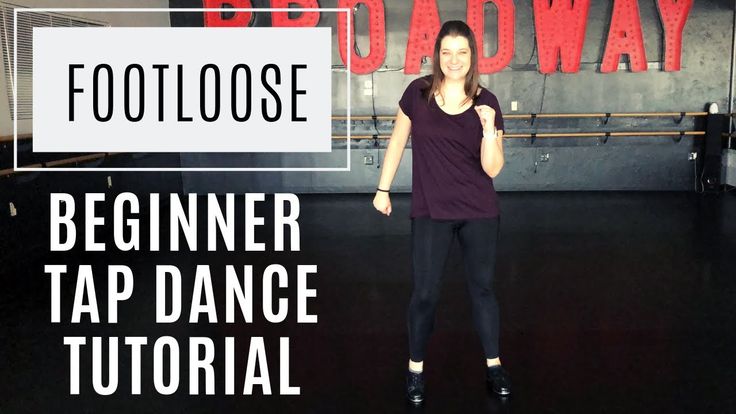 Microphones are installed on the proscenium and in the middle of the stage. And small radio microphones are attached to the shoes of the dancers.
Microphones are installed on the proscenium and in the middle of the stage. And small radio microphones are attached to the shoes of the dancers.
Related article
Sources:
- how to learn to dance with your feet
Step is based on 4 major foot movements (or "steps"). In order to learn how to dance step, you need to master them all. For easier learning, you can use the video materials that are on the Internet in the public domain.
You will need
- Shoes with special heels and a heel of approx.
Manual
Raise your right leg, bending it at the knee, and then lower it down in front of you, hitting the floor with your toe. Transfer the weight of the body to the right foot, while remaining standing on, and stomp your foot (the whole foot). Shift your weight back to your left leg. Do the exercise several times. Then change legs: the left one strikes with the toe, the right one behind the step in place of the entire foot. You can also kick with your toe, bringing your foot behind you. This step is the main one in , and can be combined with the other steps below.
You can also kick with your toe, bringing your foot behind you. This step is the main one in , and can be combined with the other steps below.
With your right foot, hit the floor in front of you first with your toe, while the foot goes forward, does not rise above the floor. And then hit the floor with the heel, while the leg goes back and goes behind the left leg, remaining in a suspended state. This is the Shuffle step. Next, kick the toe of your right foot to the floor and transfer your weight to that foot while stepping in place with your left foot. Those. essentially perform the Ball-change step. Repeat the step several times and switch legs.
This step is done in the same way as the previous one, but one step further. Those. toe and heel, the right leg is not brought back, but is put forward on the whole foot. Then the Ball-change step. The left foot, which had been standing still while the Flap step was taking place, strikes the floor with the toe and the weight is transferred to it.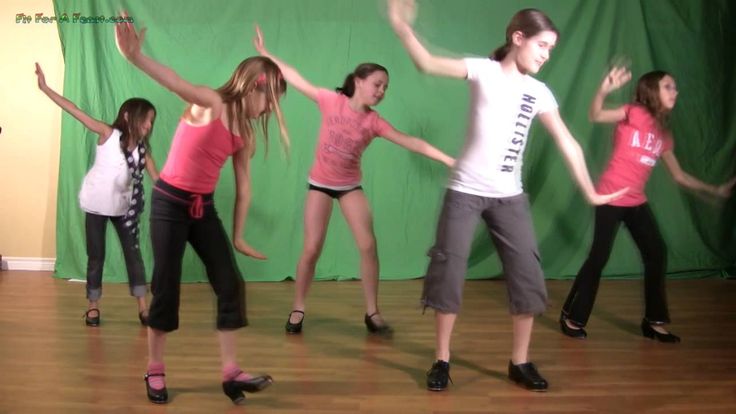 The right leg takes a step in place, the weight is transferred to it. Then the legs change.
The right leg takes a step in place, the weight is transferred to it. Then the legs change.
The right leg steps back, simultaneously hitting the floor with its toe, and hangs in a bent state above the floor. Then the Ball-change step begins: the right foot kicks the floor behind, the weight is transferred to it. The left foot takes a step in place on the whole foot. The weight is again transferred to her. Legs change.
Do all four steps in different variations.
Pay Attention
You shouldn't start learning step dance immediately after purchasing shoes. You need to wear it for a while and get used to the new heels and unusual noise. Also, when searching for video materials, one should not confuse classical step with disco step and other dance styles that arose much later.
Useful advice
In the step step, when performing a step, put your foot on the whole foot (except for movements that require a toe or heel strike, of course). At the same time, it must be done with effort.
Sources:
- Description of the main steps of the step.
Dram- step is a dance direction with a beautiful sonorous name. Why Drum? Because the dance is built to broken rhythms in the style of Drum and Bass. This direction began to develop in 90s, when the world's legendary DJs began to host parties. Drum music is better known to us as Jungle music. And the dance accompanied by her turns out to be very unusual. And learning to perform such movements is not very easy.
You will need
- sneakers;
- flat-soled sneakers;
- jeans;
- pants
Manual
Break, hip-hop and hard elements step a - all this easily combines the drum - step . At the beginning, it was popular only in clubs where the "broken line" was actively spinning and was considered a dance of the elite - those who understand hip-hop and. But over time, young people brought such movements to the streets. And now the drum - step is easy to learn on your own at home. The main movements of this are done with the help of the legs (such kind of "feints" with the legs).
And now the drum - step is easy to learn on your own at home. The main movements of this are done with the help of the legs (such kind of "feints" with the legs).
The dance technique is quite simple - it is based on the alternation: toe-heel, toe-heel. Also among the main elements of this type are step a there are alternating swings of the legs forward, then to both sides, and then crossing. There may also be turns on the floor, on the heels, on the toes. And aerobatics is turns in the air. To successfully perform the dance, in addition to all other movements, it is necessary to master the technique of turns. You need to be able to perform them around your axis, and at a fairly high speed.
The main condition for the successful performance of drum- step a is the observance of the angle at which the foot rises to the ground. It must be straight and correct. There is no clear sequence of movements, this dance is a complete improvisation.